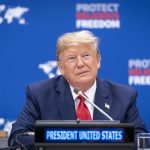In a recent policy discussion that signals significant developments in the ongoing battle for Second Amendment rights, a proposed bill concerning the National Firearms Act (NFA) has caught the attention of gun owners and advocates alike. The conversations were sparked by updates regarding the “big beautiful bill,” which has both its supporters and critics wondering whether it could indeed pave the way for expanded rights or whether it merely represents another missed opportunity. The bill received mixed reviews, highlighting both the frustrations and hopes of firearms enthusiasts across the nation.
Key provisions of the bill suggest that while some unwanted elements of the NFA remain, significant tax burdens related to certain firearm transfers may be reduced. For example, the proposed changes would maintain the $200 tax for transferring machine guns or destructive devices, but drop the tax to zero for most other firearms. This means that transfers of suppressors and short-barreled rifles would not incur tax penalties, raising questions about the implications for ownership and the very fabric of gun rights in America. While many advocates celebrate the potential removal of some financial barriers, they are equally aware that the registration process remains intact, signaling a complicated reality for Second Amendment supporters.
Moreover, the dynamics of Senate proceedings concerning the bill are critical. With discussions expected to happen soon in the Senate, its fate hangs in the balance. The bill’s supporters have expressed that this may be the best opportunity to achieve any progressive changes regarding the NFA—a “second bite at the apple,” as some have likened it. A crucial aspect of the conversation revolves around the need for pressure from constituents aimed at Senate members, particularly those like Senator John Thune, who hold key positions that might influence the bill’s trajectory. Such mobilization is key as it could lead to alterations in the final structure of the legislation, potentially steering it in favor of gun owners seeking less restrictive policies.
Another point of contention remains the role of the Senate parliamentarian in deciding legislative nuances. The current parliamentarian has faced criticism for her interpretations, which some assert favor restrictions on gun ownership through intricate policy definitions. Efforts are underway to push for changes that could facilitate a more favorable environment for gun rights. Advocates believe that significant pressure from the public could lead to greater awareness among lawmakers about the potential repercussions of failing to support gun rights legislation.
As this legislative process unfolds, the importance of activism cannot be overstated. Gun owners and rights enthusiasts must remain vigilant and continue to advocate for their freedoms. Whether one sees the proposed changes as a step in the right direction or an inadequate compromise, engagement with the political process remains essential. Contacting representatives, voicing opinions, and participating in public discourse are all vital for shaping the future of Second Amendment rights in America.
In conclusion, while the proposed legislation around the NFA is not without its pitfalls, it represents a critical juncture for gun owners. As discussions progress, it is imperative for advocates to stay informed and active. The path forward may be challenging, but it is one that requires both unity and perseverance among those who value their constitutional rights. The Second Amendment is fundamental to American liberty, and any steps to protect and improve it must be met with determination and resolve.




